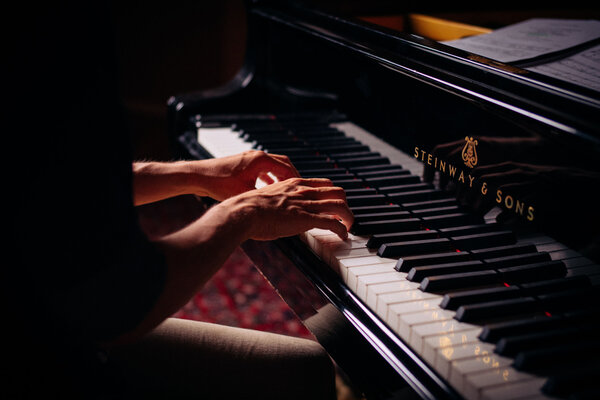Renée Fleming is one of America’s best-loved sopranos – a four-time Grammy winner who has worked with greats such as André Previn and Georg Solti. Yet after a lifetime in music, it was a chance encounter with Dr Francis Collins, director of the National Institutes of Health (NIH), that led to what was perhaps her most profound encounter with her art.
Fleming, who is Artistic Director at Large for John F Kennedy Center for the Performing Arts, explains: “It began with an impromptu meeting with Dr Collins at a dinner, where I asked him whether we might create a platform for research on neuroscience and music.”
Several fruitful years later, she has discussed this wide-ranging topic with leading scientists and experts, and her passion for the powerful intersection between the arts and wellness has grown exponentially.
She has discovered how music has the ability to shape 86 billion neurons in the brain for cognitive development, healing and therapy, improving everything from anxiety to pain relief. When Covid halted her international concert schedule, Fleming took the opportunity to create the Music and Mind LIVE series – 19 episodes that will blow your mind, harmoniously. In the series, Fleming explores the connections between our brains and the musical beat, speaking with everyone from former US Surgeon General Dr Vivek Murthy to Grateful Dead drummer Mickey Hart and pre-eminent classical tabla virtuoso Zakir Hussain.
During their discussion on music, loneliness and isolation, Dr Murthy tells her: “The arts are powerful tools for social connection and healing. When we make or enjoy music together, that can boost our endorphin levels significantly. If you want to build social connections, join a choir group. Singing together in unison turbocharges our endorphins.”

Hart expands on the healing tradition of rhythm for physical and emotional wellbeing: “When I play a drone vibration, the frequencies affect your brain waves, your mind, the master clock – the most incredible instrument on the planet,” he declares. “Music helps with cognition. When you play certain rhythms it moves people, especially those with dementia. Memories come back. Science has supported the anecdotal evidence we already knew inside: that the earth creates a tone as it revolves around its axis. It’s B-flat.”
Zarki adds that, incredibly, one of the earliest drone instruments – the tanpura – was intuitively tuned to B-flat, and that Indian women naturally sing in the key of B-flat. Science may never establish how our ancestors made these links, but researchers increasingly acknowledge that music can be as effective as an injection of chemicals to revitalise an individual.
In other episodes, Fleming chats with author Deepak Chopra about music and meditation, and with best-selling neuroscientist Daniel Levitin about ways to engage with music. She also speaks to ABC news correspondent Bob Woodruff about how the arts can help injured war veterans heal, as well as with psychology experts about how music can be a superpower for children.
“There is no culture that doesn’t have music,” Hart remarks. “Music is not a luxury, it is a necessity.”
The complete series is available at ReneeFleming.com.
© 2025 JI Lifestyle GmbH. All rights reserved.